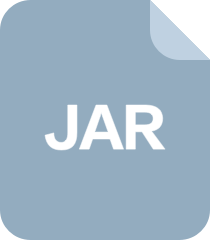基于java的程序监控API Java Simon.zip

2.虚拟产品一经售出概不退款(资源遇到问题,请及时私信上传者)
Java Simon 是一个强大的基于Java的程序监控工具,它提供了一套API来帮助开发者对应用程序的性能进行深入的度量和监控。这个压缩包文件“javasimon-3.2.1”包含了Java Simon的3.2.1版本,用于集成到Java应用中,以便实时跟踪和分析各种操作的执行时间、计数以及其他相关指标。 Java Simon的核心概念主要包括Stopwatch(秒表)和Counter(计数器)。Stopwatch用于测量代码块的执行时间,提供精确的时间统计,有助于识别性能瓶颈。它可以通过开始、停止和重置等方法来控制,使得在代码中插入监控变得简单而无侵入性。Counter则用于记录事件的发生次数,例如请求处理、错误发生等,它支持增量、减量和重置操作,方便统计和分析应用运行中的各种事件。 在实际应用中,Java Simon可以通过以下方式使用: 1. **初始化和配置**:你需要在应用程序启动时初始化SimonManager,这通常通过`SimonManager.getManager()`完成。然后,你可以根据需求配置Simon的行为,比如设置存储策略、采样频率等。 2. **创建和使用Stopwatches**:在代码的关键部分,使用`SimonManager.getStopwatch("myStopwatch")`创建或获取一个已存在的Stopwatch,然后用`start()`和`stop()`方法围绕你想要度量的代码段。例如: ```java Stopwatch stopwatch = SimonManager.getStopwatch("myTaskExecution"); stopwatch.start(); // 执行任务的代码 stopwatch.stop(); ``` 3. **使用Counters**:类似地,你可以通过`SimonManager.getCounter("myCounter")`获取或创建Counter,并使用`inc()`和`dec()`方法来增加或减少计数值。例如,每当处理一个请求时: ```java Counter requestCounter = SimonManager.getCounter("requestsReceived"); requestCounter.inc(); ``` 4. **报告和可视化**:Java Simon还提供了报告和数据导出功能,可以将收集到的数据输出为CSV或其他格式,以便进一步分析。此外,还可以结合第三方可视化工具如Grafana或JMX来展示和监控数据。 5. **定制化**:Java Simon是高度可扩展的,允许你自定义模拟器的行为,例如实现自己的存储策略、监听器或统计计算方式。这使得它能够适应各种复杂的应用场景。 6. **集成到框架**:Java Simon可以轻松地与Spring、Guice等依赖注入框架集成,通过注解或配置文件自动管理Stopwatches和Counters。 7. **性能影响**:虽然Java Simon提供了详细的监控,但需要注意的是,频繁的监控操作可能会对应用性能产生一定影响。因此,合理的配置和使用策略是必要的,比如只在调试或性能测试阶段启用监控。 总结来说,Java Simon是一个强大的Java性能监控解决方案,它提供了一整套API来帮助开发者度量和优化应用程序的性能。通过理解并有效利用Stopwatch和Counter,开发者可以更好地理解和改善代码的运行效率,确保应用在生产环境中的高效运行。
 基于java的程序监控API Java Simon.zip (12个子文件)
基于java的程序监控API Java Simon.zip (12个子文件)  javasimon-3.2.1
javasimon-3.2.1  lib
lib  javasimon-examples-3.2.1.jar 82KB
javasimon-examples-3.2.1.jar 82KB deps
deps  h2-1.3.166.jar 1.21MB
h2-1.3.166.jar 1.21MB javasimon-console-webapp-3.2.1.war 384KB
javasimon-console-webapp-3.2.1.war 384KB javasimon-javaee-3.2.1.jar 20KB
javasimon-javaee-3.2.1.jar 20KB javasimon-jdbc4-3.2.1.jar 40KB
javasimon-jdbc4-3.2.1.jar 40KB javasimon-core-3.2.1.jar 133KB
javasimon-core-3.2.1.jar 133KB javasimon-spring-3.2.1.jar 15KB
javasimon-spring-3.2.1.jar 15KB javasimon-console-embed-3.2.1.jar 405KB
javasimon-console-embed-3.2.1.jar 405KB javasimon-all-3.2.1-javadoc.jar 1.7MB
javasimon-all-3.2.1-javadoc.jar 1.7MB javasimon-all-3.2.1-sources.jar 576KB
javasimon-all-3.2.1-sources.jar 576KB readme.txt 4KB
readme.txt 4KB lgpl.txt 26KB
lgpl.txt 26KB- 1


- 粉丝: 6624
- 资源: 9万+
 我的内容管理
展开
我的内容管理
展开
 我的资源
快来上传第一个资源
我的资源
快来上传第一个资源
 我的收益 登录查看自己的收益
我的收益 登录查看自己的收益 我的积分
登录查看自己的积分
我的积分
登录查看自己的积分
 我的C币
登录后查看C币余额
我的C币
登录后查看C币余额
 我的收藏
我的收藏  我的下载
我的下载  下载帮助
下载帮助

 前往需求广场,查看用户热搜
前往需求广场,查看用户热搜最新资源


 信息提交成功
信息提交成功